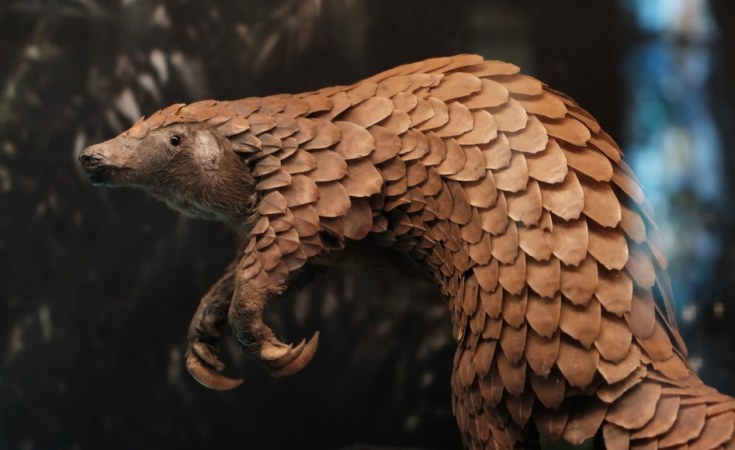Animal activists have decried the growing existential crisis and raft of welfare problems faced by pangolins and yet they are sentient beings that have a right to a wild life.
Activists said that pangolins play a crucial role in maintaining the balance of the ecosystems and it is imperative that people take action to protect them before it is too late.
The remarks were made during an event held on Friday as World Animal Protection prepares to celebrate Pangolins Day. World Pangolin Day, which will be marked today Saturday, serves as a reminder of the obligation to act urgently, according to activists.
The Wildlife campaign manager at World Animal Protection, Edith Kabesiime said pangolins are forcefully extracted from their habitats in the wild, often smoked from their hideouts and repeatedly knocked with blunt objects before being thrown into boiling water while still conscious, for extraction of their scales.
Their scales are always exported to Asia for the "unscientifically" proven traditional Asian medicine. Kabesiime said the capture is indiscriminate and the suffering these sentient beings go through are horrendous.
"To make matters even worse, when adults are captured, their babies can hardly survive on their own, leading to suffering and population decline. To protect pangolins from pain and suffering, risk of extinction and their right to a wild life, we must tackle the insatiable demand for their scales and meat," she noted.
"Pangolins are not medicine. We demand ruthless enforcement of policies to safeguard and protect them," she added.
In a keynote presentation titled "How to fall in love with a pangolin", the co-founder & director Biodiversity Alliance, Rebeca Sandoval asked the public to extend love and compassion to non-human sentient beings such as pangolins because they have a right to live in this planet just like any other human beings.
Pangolins, also known as scaly anteaters, are one of the world's most trafficked mammals and are highly sought after for their meat and scales, which are used in traditional medicines. Despite their protected status, pangolins continue to be hunted and traded illegally.
Activists said the plight of pangolins is a stark reminder of the devastating impact that human activities can have on the planet's wildlife. Activists said this is a worrying trajectory that must be ended.
In 2016, all the eight species of pangolins were listed for the Convention on International Trade in Endangered Species of Wild Fauna and Flora (CITES) Appendix I.
In 2019, the Uganda Revenue Authority (URA) conducted a law enforcement operation targeting a Vietnamese wildlife trafficking network and seized 3.2 tonnes of elephant ivory and 423 kilograms of pangolin scales with an estimated value of USD $2.3 million and $1.2 million, respectively.
Customs officials at the Elegu Uganda, South Sudan border crossing discovered and impounded the consignment in three containers concealed in logs of wood and wax in transit from the Democratic Republic of Congo to Asia.
There are eight species of pangolin: four found in Asia and four found in Africa. They have traditionally been consumed in both regions. However, only recently has the demand in Asia been met through the supply of African pangolins.
Pangolins have a slow reproductive rate, with females giving birth to only one or two offspring per year, which makes it difficult for populations to recover from over-hunting and other threats.
Activists said snimal welfare efforts, including habitat protection, anti-poaching measures, and education and awareness campaigns, are necessary to ensure the survival of pangolins and their habitats.


